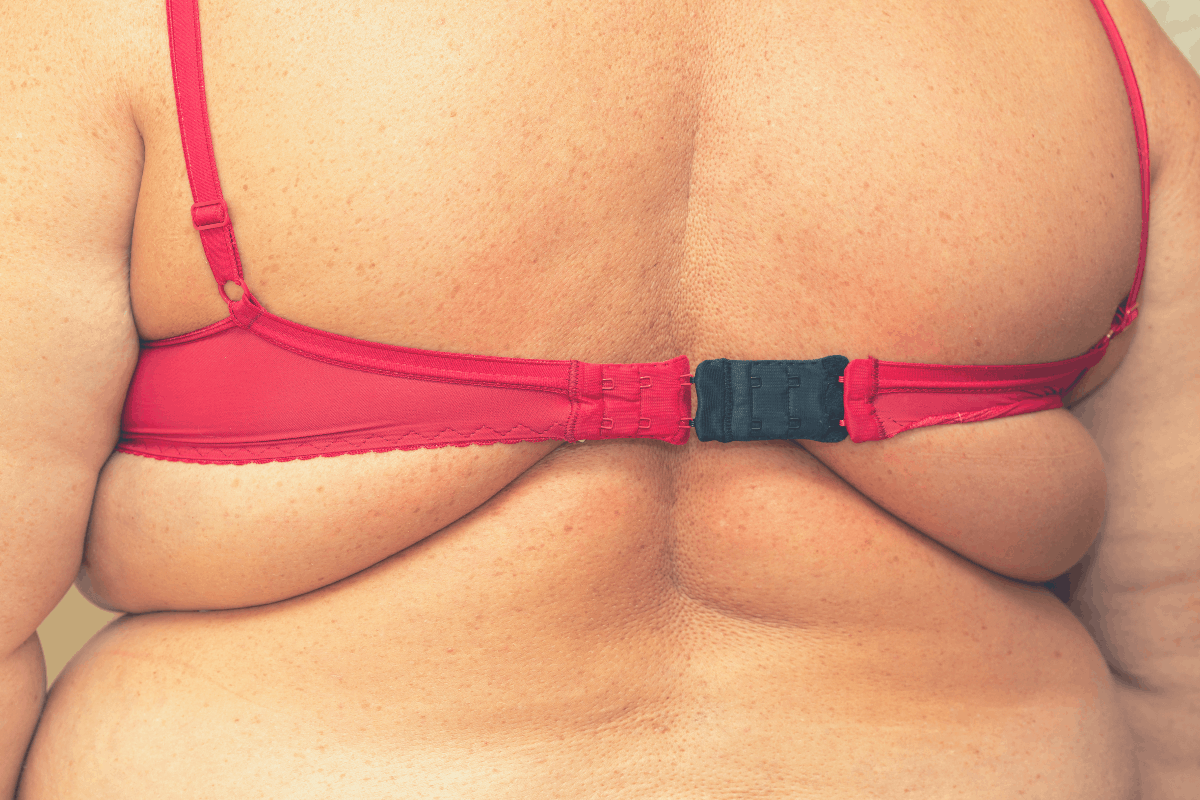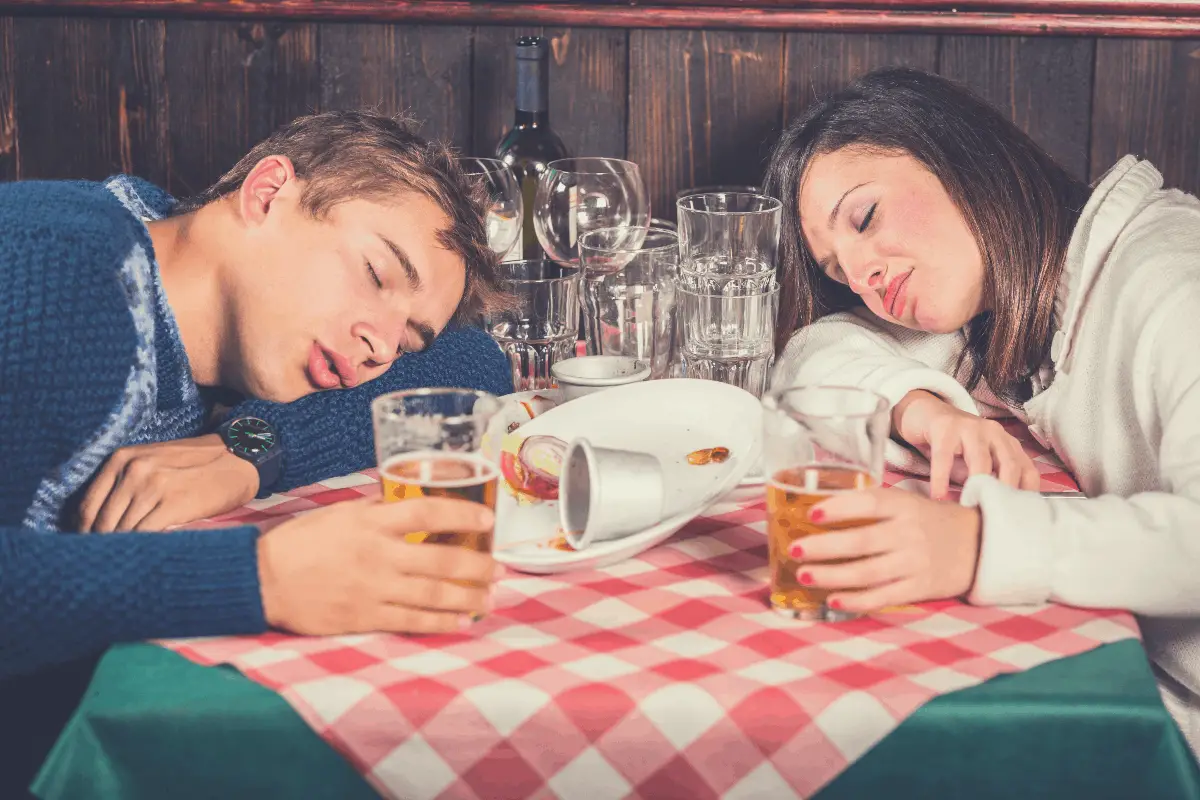Parents and teachers tell kids all the time that eating late is bad, from childhood. And yet we end up doing it anyway. It may be because you work late or your car breaks down on the way home from the office.
Eating dinner late is bad enough. Yet most of us go to sleep at the regular time because we still have to work in the morning.
Is it bad for your health to sleep when you’re full?
The answer is yes. Eating before bed can cause problems ranging from acid reflux to indigestion to stomach pain and insomnia.
That’s why you should always try to eat early so that most of your digestion can take place before you go to sleep.
Does that mean you should go to bed on an empty stomach if you’re hungry late at night? That’s a definite no. Sleeping when you’re hungry has several side effects that can be detrimental to your health. Here is the article we wrote about going to sleep when hungry.
Reasons Why You Should Avoid Sleeping When Full
As noted above, sleeping on a full stomach is a bad habit that can ruin your health. Shall we dive into the effects of eating a full meal right before bedtime?
1. Digestion Problems
One of the main problems associated with eating before bed late at night is digestion. Experts recommend sleeping 2-3 hours after your last meal. This is enough time for a higher percentage of the ingested food to be digested.
Lying down to sleep inhibits the ability of the stomach, intestines, and other digestive organs to work efficiently. This is because food is best digested when the body is in an upright position.
Unfortunately, when you sleep, the position of these organs tilts, slowing down the digestive process. This is the cause of stomach pain and other uncomfortable problems like a bloated belly and gas when you eat before bed.
Also, keep in mind that fried foods are inherently difficult to digest. Therefore, eating a meal like fries, steaks and anything fried at night can further upset your gastrointestinal organs.
Foods that contain processed sugar and artificial sweeteners can also take more time to digest. For this reason, you should always eat early.
2. Insomnia
Few things have the power to disrupt your sleep as much as eating a late dinner. Did you know that the digestive organs kick in as soon as any type of food arrives in your stomach?
Well, digestion is a complicated process that puts a strain on your body, especially when you go to bed with a full stomach. This can interfere with your brain’s ability to relax while you’re trying to get some sleep.
Unfortunately, quality sleep is only possible when the brain is relaxed and at rest. This is the reason why eating late at night has been linked to insomnia.
Sleeping is complicated by the gastrointestinal processes that take place during the night as the body tries to digest the food it consumes.
This is another food for thought when you’re weighing whether it’s worth it to sleep right after a meal.
3. Weight Gain

Going to bed with a full stomach is bad for your weight. If you go to bed with a full stomach for an extended period of time, it could be the reason why your weight loss efforts are never successful. But how does eating late lead to weight gain?
First, a full plate of calories late at night limits your body’s ability to burn them off. Remember, physical activity is the most effective way to burn calories in the body. Since sleep makes you sleepy, you can expect your body to store a higher percentage of the calories you consume as fat.
Also, studies have shown that you are more likely to eat high calorie foods late at night than at other times of the day.
Also, late eaters tend to consume larger portions of food than those who eat earlier. Eating more means more calories, which leads to more fat, which leads to weight gain.
4. Gastroephegal Reflux Disease (GERD)
Studies have linked sleeping on a full stomach to Gastroephegal Reflux Disease. As mentioned earlier, the stomach releases different types of acids to aid in digestion once you eat food.
These acids are released in large quantities for effective digestion and synthesis of food into various nutrients.
But lying down while sleeping interferes with the ability of these acids to work optimally. Since gastrointestinal acids require an upright position to operate, they can easily fall back into the esophagus.
Unfortunately, the esophagus is not optimized to handle these acids. Therefore, their presence can cause real damage to the walls of the esophagus, leading to various forms of discomfort.
Acid reflux, heartburn or GERD is the term used to describe the recurrence of acids into the esophagus. Symptoms of the condition range from chest pain to an unpleasant taste in the mouth.
Heartburn can be painful and downright annoying. In its severe form, heartburn can negatively affect appetite because of the fear of suffering from symptoms after eating.
5. Does eating before bed cause nightmares?
The answer is yes. We often get nightmares during Rapid Eye Movement sleep. Several studies have shown a link between eating at bedtime and nightmares.
That’s why many of us experience those horrible dreams after eating heavy meals late at night. But how can sleeping on a full stomach cause a nightmare?
A study by Harvard University found that waking up several times during the night increases the likelihood of having scary dreams. Since eating before bed has consistently caused sleep disturbances, this is evidence that sleeping late can cause nightmares.
Also, eating a large amount of carbohydrates a few hours before sleep is a leading cause of night sweats and other forms of malaise. This can eventually lead to significant sleep disturbances and nightmares.
How Many Hours After Eating Can You Sleep?
From all of the above, it is clear that sleeping with a full stomach does not do your body any good. Therefore, it is important to wait for a few hours after eating. But how long should you wait to sleep after eating? The answer is at least 2-3 hours.
The truth is, the longer the window between dinner and sleep, the better. No wonder many moms are always nagging their kids for not eating dinner on time.
That being said, there are times when dinner at 6pm just isn’t feasible. In this case, aim for a minimum wait time of 2 hours before going to bed. This should allow the body to go through the hardest parts of digestion, allowing you to sleep relatively well during the night.
What to do if You are Hungry during The Night?
Feeling hungry late at night is something you will deal with sooner or later. If you regularly work long hours, night hunger can become a regular part of your life.
Now we know that eating a heavy meal before you fall asleep is bad for your health in many ways. But what do you do when you’re hungry at night? Here are a few healthy options to keep your health in check.
1. Drink Water
If you haven’t been starving all day, a glass of water can do wonders for your hunger. This is especially true if you had a big meal earlier in the day. Just try not to drink cold water to avoid digestive problems.
2. Eat Light
Have you been starving practically all day? If so, a big meal may seem very appealing. You may feel that nothing else can help with your hunger.
However, heavy meals in the evening bring several problems, as mentioned earlier in this article. Often, a light snack like a fruit is enough to get rid of hunger and go to bed with peace of mind.
Remember that fruits and vegetables are easy to digest and can help you sleep better. And the fact that they contain fewer calories means a lower risk of weight gain and associated health problems.
3. Stay Up For A Couple More Hours

Whether you eat junk food like pizza or healthy alternatives like fruits or vegetables, your body still has to digest them. That’s why you can’t go straight from supper to bed.
Instead, try to stay up for a few more hours so that digestion can take place. If you are able, a quick 15-minute walk can even speed up the digestion process and burn extra calories.
4. Sleep On Your Sides
Digestion is more efficient when you are upright and moving around. However, if you can’t stay awake for one reason or another, side sleeping is the best position for effective digestion.
Sleeping on your left side, in particular, improves digestion and prevents acid reflux and other negative effects. Click here to read the article we wrote about sleeping on the left side.
Related Questions
- Does eating late at night cause me to gain weight? Not necessarily. However, studies have shown that we tend to eat more junk food at late night meals, which can lead to belly fat. So it’s not so much the time of day that matters, but what you eat and your level of physical activity afterwards.
- What can I eat after 9pm? 9pm is pretty late, which means low-calorie snacks like blackberries, strawberries, almonds, smoothies, cream crackers, and cereal. Generally, foods with little to no processed sugar are the best choice.
- What shouldn’t you eat at night? You should avoid high-calorie foods like chips, meat, chocolate, coffee, alcohol, soda and orange juice.
Conclusion
Going to bed on a full stomach is a bad idea that can put your health at risk. If you’ve been practicing it for years, it could explain why you have an enlarged waistline, suffer from heartburn frequently, and have nightmares.
Eating a light snack is always a better option, even if you crave a big plate of junk food. If you must eat something heavy, try to wait at least 3 hours after the meal before retiring to bed.
This should have minimal impact on your ability to get a good night’s rest and prevent weight gain.
